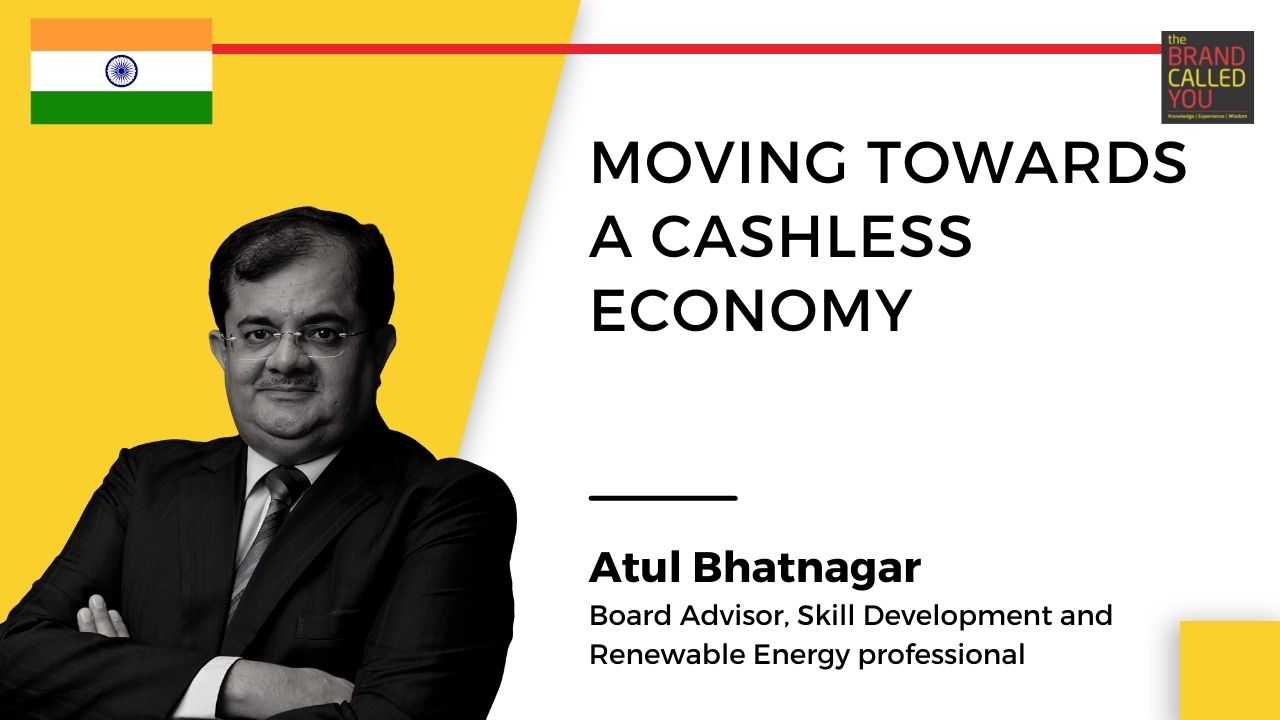Atul Bhatnagar, Board Advisor, Skill Development and Renewable Energy professional
Board Advisor, Thought Leader, Mentor, Talk Show Host, TEDx Speaker | Skill Development, GreenTech, Education & Fintech | IIT Kanpur, IIM Calcutta
Podcast
Overview
Banking forms the backbone of any country’s economy. With the increasing use of technology and rapid digitization, the financial backbone has undergone a tremendous change, which is believed to be largely for the good.
In today’s episode of TBCY, we have with us Mr. Atul Bhatnagar, board advisor and a former banker who delves deep into the topic. He compares his time in the banking sector with the current environment.
About Atul Bhatnagar:
Atul Bhatnagar is a former banker and has worked for Citibank, Barclays, and HSBC. He is currently a board advisor as well as a person who has considerable knowledge of skill development and renewable energy.
Having spent many years as a retail banker in India and overseas Atul has seen a lot of changes and he has also seen and experienced how technology is improving the consumer experience significantly.
Discussion:
Digital Revolution & Banking
With the rapid use of technology in the banking sector, Atul Bhatnagar mentions how he feels ancient. He speaks about how mobile phones are revolutionizing the way business is done at the retail level in our country. The high speed of executing things like opening a bank account in just five minutes or approving the bank loan in 59 minutes has given easy funding options to a number of small start-ups across the country. He compares today’s generation to speedboats that have the ability to move fast.
Atul also speaks about how India is moving towards a cashless economy and over a period of time he expects the cash transactions to decline very significantly. Interestingly, Atul refers to cash in the economy as “grey money” instead of “black money” since he has returned from Africa. He rightly states that the term “black money” is a racist term and should not be used.
Yet another reason for this fast-paced digital revolution is the lifestyles of the millennials and Gen Z. Atul explains how today’s generation is demanding speed.
Their motive of choosing organizations actively involved in social development is also changing the country’s banking environment. He says:
“Another very interesting point about millennials is that they are also looking at a social angle towards whatever they are doing. They are not going to be associated with the premium banking customers, which was like pampering the guy because he has got tons of money. No, they are going to look at what is my organisation where I am banking with doing in terms of pollution, climate action, CSR. And that’s going to get the customers and banks also have to change in that front.”
Transparency in Indian Board Rooms
Atul, also rightly, speaks about the transparency requirements when a person is looking at a new board position. Given the fiduciary requirements for Board members, it is important to ensure that one does due diligence before accepting any board position.
He also considers the importance of diversity to ensure transparency. Diversity of gender, people with different educational backgrounds, and people who will be impacted at ground levels. He believes such inclusion brings in the much-needed perspective to work agenda and activities.
Payback to country
On his return from overseas, Atul got involved with the National Skill Development Corporation and focused on persons with disabilities.
In the episode, he speaks at length about the challenges individuals face and also outlines the large number of people who are classified as persons with disability. He points out that every human being will at some stage of the other face a disability. As we age, our eyes will weaken, our hearing will start to fail, and our legs may start giving trouble. His advice is to prepare for our lives and start planning infrastructure that surrounds us early enough in life rather than leave it too late.
The pandemic gave chance to corporates to explore hiring differently-abled people for work from home jobs and the results are speaking volumes of the success.


